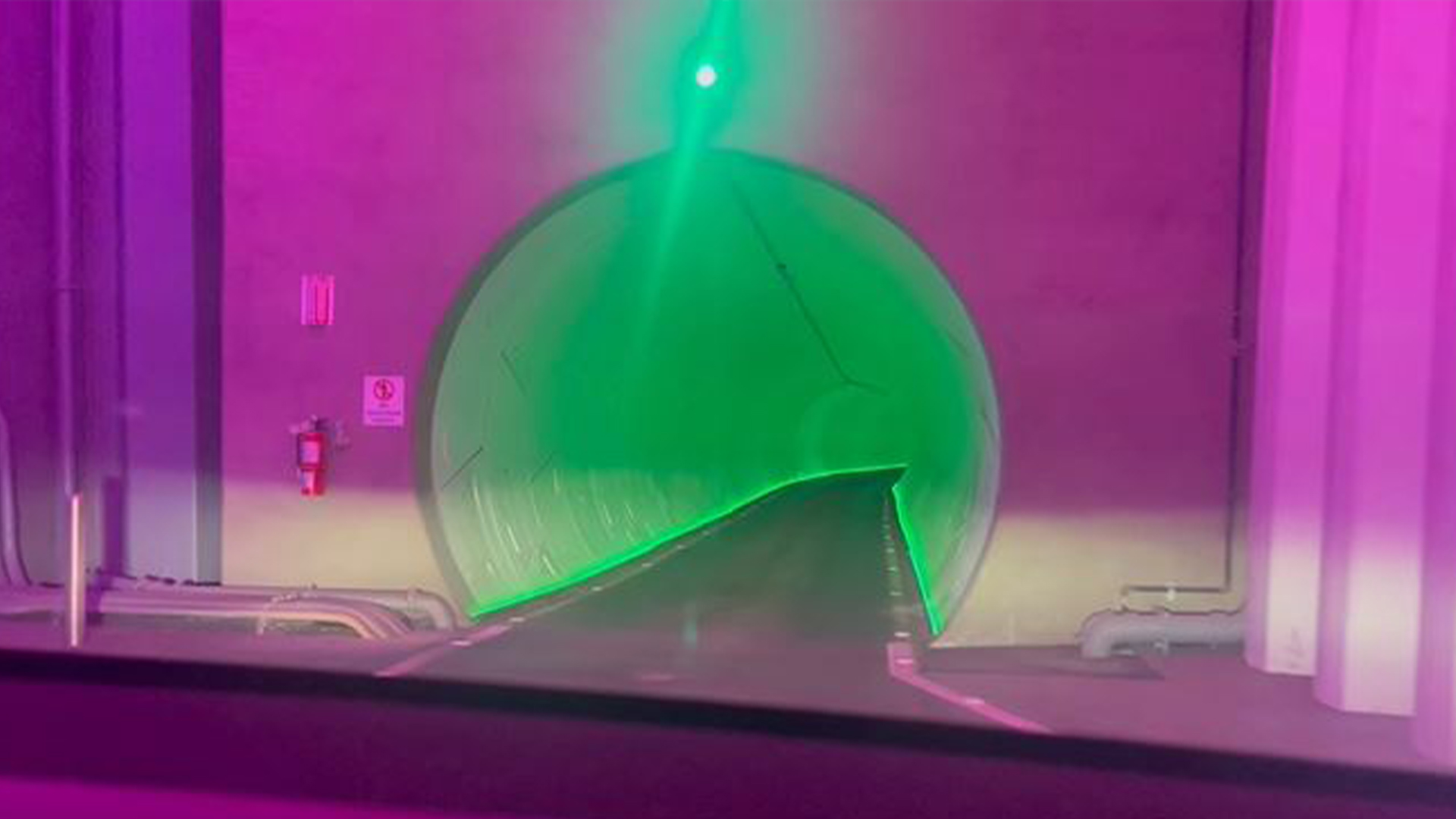
ELON Musk has built a bustling, neon-colored tunnel underneath the scorching hot blacktop parking lots around the Las Vegas Convention Center.
The tunnels, a product of Musk’s Boring Company, are a far cry from the billionaire’s initial promises. The projects have divided roadway engineers on the promise of the company’s pioneering technology.
4

4

4
In 2018, Musk promised residents in Los Angeles an upcoming 2.7-mile tunnel project.
On a balmy May day at 6 pm, at the height of the city’s famous gridlock rush-hour traffic, he held a town hall meeting to explain his vision.
“Wouldn’t it be better if you could jump inside a pod and go?” he asked as cars congested the nearby highways.
The Boring Company, whose name is a double entendre on both the idea of being unexciting and the act of drilling through the ground, aimed to create a straightforward system of pods to transport people underground.
Read More on Elon’s Companies
Small stations equipped with elevators and escalators would haul hundreds of people into the subterranean chutes.
Pods traversing the tunnels would carry groups of 16 people up to 150 mph to their destination, Musk claimed.
It would completely modernize roadway traffic as we know it.
Six years after Musk’s rush-hour event, I rode in the Las Vegas Loop, a brainchild of this project, at the Advanced Clean Technology Expo.
There are no pods, there are Teslas.
We traveled at standard road speeds, not 150 mph. It was hundreds of miles from the promised Los Angeles construction site, and it was a mile shorter than the initial project.
But some road engineers believe the still nascent project’s promise is critical to the modern American city.
“It’s a good idea to think about the three-dimensional space,” Tim Menard, the CEO of LYT, a cloud-intelligent transportation software company, told The U.S. Sun.
“The real technology behind [The Boring Company] is the reason we are not going underground. It’s so damn hard and long. If that gets fixed, it’s going to make some huge positive impact.”
The Boring Company is working on proprietary technology that engineers believe may be able to dig the holes while simultaneously constructing the tunnel’s liner segments.
Menard, a former Tesla engineer, said residents should remain bullish on the idea of tunnels snaking under their city.
Tunnels allow more hybridization of ground-level activities, he said. Pedestrians on the earth’s surface can more easily walk without car infrastructure.
Menard added that residents can look to Singapore, a country that has heavily invested in tunneling, as an example.
On the ground, the country has developed a strong recreational economy with expansive pedestrian walkways.
Underground, citizens can easily transport from one area of the country to another.
The real technology behind [The Boring Company] is the reason we are not going underground. It’s so damn hard and long. If that gets fixed, it’s going to make some huge positive impact.
Tim Menard
Menard called the system “a whole new world,” of transportation.
But critics of Musk’s private project said The Boring Company has fallen short of its initially lofty promises.
The absence of proprietary pods was a main gripe among transportation engineers I spoke to at the Expo.
They worried that The Boring Company, which says it’s still developing the pod tech, is shifting to another form of highway construction.
The construction of more lanes motivates drivers to continue using their cars and can add to congestion, studies show.
Critics also pointed to the driver-manned Teslas as the potential lack of innovation.
A driver in one of my Tesla rides said the company struggled through Las Vegas’ government red tape while constructing the first version of the Loop.
“You have to have a fire station, communication, flood control, and smoke [exhaust],” he said.
All of the required emergency systems restrained municipal resources, the driver added.
Musk has a history of making lofty promises with his technology and releasing a similar project with a few missing bells and whistles a few years late – for example, the Cybertruck or the potentially upcoming $25,000 EV.
Still, the billionaire has revolutionized the way modern Americans view transportation.
His tunnels offer a similar revolutionary promise to engineers like Menard, but skeptical EV experts are waiting to see how the programs actually launch.

4